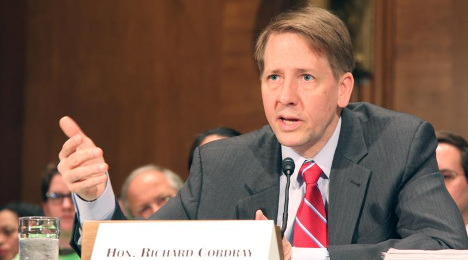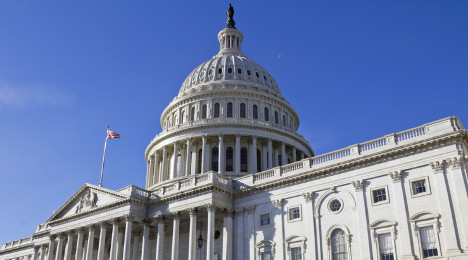AUL Corp. recently completed the requirements for a Service Organization Control (SOC) 2 type II audit. Specifically targeting service firms with a focus on security, availability, processing integrity, confidentiality and privacy, AUL highlighted SOC 2 is designed to meet the demands of the vehicle service contract marketplace.
Why is SOC 2 important to AUL customers? Officials explained that a service company like AUL has to meet the stringent standards in place for a SOC 2 audit to ensure that a client’s data is well protected. AUL said it has demonstrated it has adequate controls in its data systems, technologies and processes.
AUL noted that it chose to become SOC 2 type II compliant rather than a SOC2 type I or a SOC 1 because it means controls are effective over a period of time rather than at a point in time, and it is more applicable to the VSC industry as it deals with data security rather than just financial information.
“The completion of the SOC 2 audit is another key step in the growth of AUL and verifies our commitment to our customers' data safety and security,” AUL chief operating officer Jimmy Atkinson said. “We believe that by following best practices and current regulatory guidance, we make AUL a stronger, more effective partner for our agents, dealers and contract holders.”
Atkinson went on to say that this extensive report provides independent validation that AUL's internal controls are in accordance with the selected Institute of Certified Public Accountants' trust services principles and criteria.
One of the leading independent auditors, Armanino completed the SOC 2 audit verifying that AUL's processes and systems meet all the requirements for security, availability and confidentiality. Armanino is the largest California-based CPA and consulting firm and one of the Top 10 fastest-growing large accounting firms in the nation.
“Achieving SOC 2 compliance is a major milestone for any service provider and demonstrates a significant commitment to a strong internal control environment. Obtaining a SOC2 report is a major differentiator for AUL as they look to continue growing their business,” Armanino’s Liam Collins said.
In addition to obtaining the SOC 2 certification, AUL noted that it is investing in platform enhancements to its infrastructure, adding additional layers of redundancy and increased monitoring of the entire IT platform.
Back when Brett Roberts started his career at Credit Acceptance in 1991, you could buy a single song— on cassette tape — and the longest term the subprime finance company had in its portfolio stretched to just 24 months.
Now in 2016, Roberts is the company’s chief executive officer and you still can purchase just one song — digitally on iTunes — and Credit Acceptance is now booking paper with terms as long as 72 months.
When the company hosted its latest conference call to share its first-quarter results, Roberts reflected back on how Credit Acceptance has navigated industry changes, just like how the music scene abandoned cassettes in favor of digital products.
“When I joined the company in 1991, the longest loan term we would do is 24 months,” Roberts said. “As we got comfortable with our ability to forecast and to price and to track loan performance over time, we decided to experiment with a longer term and so we went from a max term of 24 months out to 30 months.
“When we did that, we didn’t have any 30-month loans in our portfolio so we had to make an educated guess about how a 30-month loan might perform relative to 24 months,” he continued. “We weren’t 100-percent confident in that guess, so what we did is we piloted it with a small group of dealers. We began to accumulate some data. As we became comfortable that we could forecast loan performance for a 30-month loan, then we began to roll that out as part of our standard program.”
Roberts explained that Credit Acceptance repeated that strategy often during the past 25 years to the point where the company hit its maximum term of 72 months that became available to its dealer network last year.
“We approached it the same way as we did back in 1991,” Roberts said. “We rolled it out to a small group of dealers. We had to guess to some extent because we didn’t have any 72-month loans in our portfolio. So we made an educated guess.
“We’re now accumulating the data,” he continued. “We write a very small percentage of our total loans at 72 months, but as we continue to accumulate more data, we’ll get more comfortable to write more of that business.
“The average term might continue to creep up depending on how comfortable we are with that 72-month loan term. We don't have any plans at this point to go out to a longer term than 72 months, so that might mitigate some of the increase going forward,” Roberts went on to say.
More competition for business
Even though Credit Acceptance is stretching its terms to satisfy buyer requests coming from its dealer network, the company is still seeing competitive challenges. Credit Acceptance’s active dealer network blossomed by 24.9 percent during the first quarter, climbing from 5,996 to 7,488.
But the metric that caught Roberts’ attention is the volume of contracts being booked from those dealers — a pace that softened 2.9 percent year-over-year.
“The environment continues to be difficult. I think the most relevant number is volume per dealer, which was down 3 percent year-over-year,” Roberts said. “We look at that as an indicator of where we stand from a competitive environment perspective.
“We feel pretty good about our ability to continue to sign up new dealers even when the environment's difficult,” he continued. “So the strong unit volume growth we had for the quarter was really more a function of that than it was any kind of easing in the competitive environment.”
Credit Acceptance reported that it originated 73,329 contracts during the first quarter, which was 202 more deals than the same period a year earlier.
Regulatory update
Credit Acceptance confirmed in a regular filing with the Securities and Exchange Commission that the company received a subpoena from the Maryland attorney general on March 18, relating to the company’s repossession and sale policies and procedures within that state.
Senior vice president and treasurer Doug Busk touched on the matter during Credit Acceptance’s conference call.
“In terms of the Maryland matter, as we disclosed, the subpoena is focused on our repossession and sale policies and procedures in the state of Maryland,” Busk said. Not unusually in these types of matters, we don’t really have any insight into why we received the subpoena. We are in the process of providing responsive information to the AG in the state of Maryland.
“I don't think there’s any commonality relative to this and other subpoenas or regulatory actions. I think it’s just more evidence of a very heightened regulatory environment out there,” he continued.
“In terms of the collection practices, being in business as long as we have, we’ve been focused on doing things right from a regulatory perspective. So we assess the (Consumer Financial Protection Bureau’s) position on that and really anything else and make changes to our business if we think it’s necessary to meet their expectations,” Busk went on to say.
Completion of $350.2 million asset-backed financing
In other company news that came to light just this week, Credit Acceptance announced the completion of a $350.2 million asset-backed non-recourse secured financing.
Pursuant to this transaction, the company said it contributed loans having a net book value of approximately $437.8 million to a wholly-owned special purpose entity that will transfer the loans to a trust, which will issue three classes of notes:
| Note Class |
Amount |
Average Life |
Price |
Interest Rate |
| A |
$233,180,000 |
2.48 years |
99.97676% |
2.42% |
| B |
$68,210,000 |
3.09 years |
99.97433% |
3.18% |
| C |
$48,830,000 |
3.32 years |
99.97421% |
4.29% |
Credit Acceptance highlighted the financing has three characteristics, including:
• Have an expected annualized cost of approximately 3.2 percent including the initial purchaser’s fees and other costs
• Revolve for 24 months, after which it will amortize based upon the cash flows on the contributed loans
• Be used by the company to repay outstanding indebtedness.
Credit Acceptance indicated that it will receive 6.0 percent of the cash flows related to the underlying consumer loans to cover servicing expenses. The remaining 94.0 percent, less amounts due to dealers for payments of dealer holdback, will be used to pay principal and interest on the notes as well as the ongoing costs of the financing.
“The financing is structured so as not to affect our contractual relationships with our dealers and to preserve the dealers' rights to future payments of dealer holdback,” the company said.
Three large industry organizations — the American Financial Services Association, the American Bankers Association and the Consumer Bankers Association — all found similar issues with the proposed rule governing arbitration released on Thursday by the Consumer Financial Protection Bureau.
As AFSA said it anticipated, the proposed rule bans the use of class-action waivers in consumer credit agreements, which can include vehicle installment contracts.
AFSA explained in a post on its website that late last year, the CFPB released a study on arbitration. In the material, the bureau said consumers are harmed by arbitration agreements as opposed to class action lawsuits. However, AFSA insisted its careful review of the CFPB’s study demonstrated that the opposite is true — consumers are actually better served by arbitration agreements.
In 60 percent of class actions studied by the CFPB, consumers received no remuneration at all, according to AFSA’s analysis.
The association went on to mention that in the 15 percent of cases where consumers received monetary compensation in class actions, they received an average of just $32.35, after waiting an average of 24 months. In contrast, AFSA found that consumers who prevailed in arbitration agreements, on average, received $5,389.
“The real winners in class action lawsuits are plaintiff’s attorneys who divided approximately $424 million in fees,” AFSA said on its website.
“Despite a wealth of evidence suggesting that the bureau’s interpretation of its own study is flawed, today’s rule, in its present form, would have a negative impact on customers by taking away a valuable tool to resolve disputes,” the association went on to say.
AFSA added that it will comment on the proposed rule and will continue its ongoing dialogue with the CFPB.
Meanwhile, ABA took a similar stance, citing some of the same trends in the CFPB’s study that AFSA mentioned, too.
“Consumers will get less and pay more if the CFPB’s proposal to sideline arbitration and promote class actions is ultimately adopted,” ABA president and chief executive officer Rob Nichols said. “Banks resolve the overwhelming majority of disputes quickly and amicably. When needed, arbitration is an efficient, fair and low-cost method of resolving disputes in a fraction of the time — and at a fraction of the cost — of expensive litigation. This helps keep costs down for all consumers.
“Despite acknowledging these clear benefits in its 2015 study, the CFPB has chosen to put the future of arbitration at risk by requiring companies to face a flood of attorney-driven class action suits from which consumers receive virtually nothing,” Nichols continued. “We hope the CFPB will use the public comment period to rethink its approach to regulating arbitration in a way that puts consumers — not class action lawyers — first.”
Furthermore, CBA president and CEO Richard Hunt offered his theory on the motives behind what the CFPB proposed this week.
“Arbitration has long provided a faster, better, and more cost-effective means of addressing consumer disputes than litigation or class action lawsuits. The real winners of today’s proposal are trial attorneys, not consumers,” Hunt said. “The CFPB’s own study shows consumers are better served by arbitration, noting that 60 percent of class action lawsuits provide consumers with no benefit.
"Per the bureau’s study, a consumer recovers on average $5,389 when using arbitration and just $32.35 when participating in a class action suit," he continued. "One reason for this great disparity is because class action attorneys take on average 21 percent from their clients’ cash recoveries, some take as much as 63 percent.
“It is unfortunate this pre-baked proposal is political rather than substantive,” Hunt added. “Given arbitration’s benefits for consumers and banks alike, CBA will continue its efforts to ensure a final rule does not end up eliminating this alternative dispute resolution process.”
The auto finance industry has new terminology for what the Consumer Financial Protection Bureau refers to as arbitration — "contract gotchas."
Ahead of a field hearing scheduled for later today in Albuquerque, N.M., the CFPB early on Thursday released its proposed rules that would prohibit mandatory arbitration clauses that the bureau said denies groups of consumers “their day in court.”
The bureau insisted many consumer financial products such as vehicle installment contracts, credit cards and bank accounts have “contract gotchas” that generally prevent consumers from joining together to sue their bank or financial company for wrongdoing. The CFPB believes these widely used clauses leave consumers with no choice but to seek relief on their own — usually over small amounts.
“With this “contract gotcha,” the CFPB contends that finance companies can “sidestep” the legal system, “avoid accountability” and continue to pursue profitable practices that may violate the law and “harm” countless consumers.
The CFPB stressed that its proposal is designed to protect consumers’ right to pursue justice and relief, and deter companies from violating the law.
“Signing up for a credit card or opening a bank account can often mean signing away your right to take the company to court if things go wrong,” CFPB director Richard Cordray said.
“Many banks and financial companies avoid accountability by putting arbitration clauses in their contracts that block groups of their customers from suing them,” continued Cordray, who is expected to speak at today’s field hearing. “Our proposal seeks comment on whether to ban this contract gotcha that effectively denies groups of consumers the right to seek justice and relief for wrongdoing.”
The bureau explained that mandatory arbitration clauses typically state that either the company or the consumer can require that disputes between them be resolved by privately appointed individuals (arbitrators) except for cases brought in small claims court. Where these clauses exist, either side can generally block lawsuits from proceeding in court.
These clauses also typically bar consumers from bringing group claims through the arbitration process. “As a result, no matter how many consumers are injured by the same conduct, consumers must proceed to resolve their claims individually against the company,” officials said.
The CFPB is seeking comment on a proposal to prohibit companies from putting mandatory arbitration clauses in new contracts that prevent class action lawsuits.
“The proposal would open up the legal system to consumers so they could file a class action or join a class action when someone else files it,” the bureau said.
Under the proposal, officials explained finance companies would still be able to include arbitration clauses in their contracts. However, for contracts subject to the proposal, the clauses would have to say explicitly that they cannot be used to stop consumers from being part of a class action in court. The proposal would provide the specific language that companies must use.
The proposal would also require companies with arbitration clauses to submit to the CFPB claims, awards, and certain related materials that are filed in arbitration cases. This would allow the Bureau to monitor consumer finance arbitrations to ensure that the arbitration process is fair for consumers. The bureau is also considering publishing information it would collect in some form so the public can monitor the arbitration process as well.
Through the Dodd-Frank Wall Street Reform and Consumer Protection Act, Congress required the CFPB to study the use of mandatory arbitration clauses in consumer financial markets. Congress also gave the bureau the power to issue regulations that are in the public interest, for the protection of consumers, and consistent with the study.
Released last March, the CFPB’s study showed that very few consumers ever bring — or think about bringing — individual actions against their financial service providers either in court or in arbitration. The study found that class actions provide a more effective means for consumers to challenge problematic practices by these companies.
According to the study, class actions succeed in bringing “hundreds of millions of dollars” in relief to millions of consumers each year and cause companies to alter their “legally questionable conduct.”
The bureau said its study showed that at least 160 million class members were eligible for relief over the five-year period studied. Those settlements totaled $2.7 billion in cash, in-kind relief, and attorney’s fees and expenses.
In addition, officials pointed out these figures do not include the potential value to consumers of class action settlements requiring companies to change their behavior.
“However, where mandatory arbitration clauses are in place, companies are able to use those clauses to block class actions,” the CFPB said.
Officials contend benefits to the CFPB proposal would include:
• A day in court for consumers: The proposed rules would allow groups of consumers to obtain relief when companies “skirt the law.” The bureau insisted most consumers do not even realize when their rights have been violated. Officials think that often the harm may be too small to make it practical for a single consumer to pursue an individual dispute, even when the cumulative harm to all affected consumers is significant. The CFPB study found that only around 2 percent of consumers with credit cards who were surveyed would consult an attorney or otherwise pursue legal action as a means of resolving a small-dollar dispute. “With class action lawsuits, consumers have opportunities to obtain relief from the legal system that, in practice, they otherwise would not receive,” the CFPB said.
• Deterrent effect: The bureau noted the proposed rules would incentivize companies to comply with the law to avoid group lawsuits. “Arbitration clauses enable companies to avoid being held accountable for their conduct. When companies know they can be called to account for their misconduct, they are less likely to engage in unlawful practices that can harm consumers,” officials said. Further, the CFPB projects that public attention on the practices of one company can affect or influence their business practices and the business practices of other companies more broadly.
• Increased transparency: The CFPB asserted that the proposed rules would make the individual arbitration process more transparent by requiring companies that use arbitration clauses to submit any claims filed and awards issued in arbitration to the CFPB. The bureau would also collect correspondence from arbitration administrators regarding a company’s non-payment of arbitration fees and its failure to adhere to the arbitration forum’s standards of conduct. “The collection of these materials would enable the CFPB to better understand and monitor arbitration,” officials said. “It would also provide insight into whether companies are abusing arbitration or whether the process itself is fair.”
The complete proposal is available online here.
Along with offering more details about complaints originating in California, the Consumer Financial Protection Bureau released its latest monthly consumer complaint snapshot this week as the overall total continued to march toward 900,000.
As of April 1, the CFPB said it has handled approximately 859,900 complaints across all products. The bureau mentioned four other trends from its latest complaint data update, including:
• Complaint volume: For the month of March, consumers submitted 8,243 debt collection complaints to the bureau. That figure accounted for more than 30 percent of all complaints submitted to the CFPB during the month.
• Product trends: Complaints submitted relating to credit reporting rose 35 percent between February and March. During the month of March, there were 3,321 credit reporting complaints submitted to the CFPB.
• State information: In terms of total complaints per 100,000 people, the District of Columbia, Maryland, Delaware, and Florida had the highest concentration of complaints submitted.
• Most-complained-about companies: The top three companies about which the CFPB received the most complaints between November 2015 and January 2016 were Equifax, Experian, and TransUnion.
“Today’s report shows that consumers are still running into too many dead ends and obstacles in resolving issues with their mortgage servicer,” CFPB director Richard Cordray said. “The bureau will continue to press to make sure that people can get the right information and the timely help they need.”
More details about California
The CFPB highlighted California for the monthly geographic spotlight.
As of April 1, the bureau determined consumers in California have submitted about 118,900 of the 859,900 complaints the CFPB has handled. Complaints from the two largest metro areas in California — Los Angeles and San Francisco — accounted for nearly 50 percent of the complaints submitted from the state.
Findings from the California complaints include:
• Mortgages are the most-complained-about product: The bureau found that consumer complaints from California were more likely to be about mortgages than consumer complaints nationally. While mortgage complaints account for 26 percent of all complaints submitted to the Bureau nationally, they accounted for 32 percent of complaints submitted from consumers in California.
• California debt collection complaints are lower than the national average: CFPB officials pointed out Consumer complaints from California were less likely to be about debt collection — 24 percent of total complaints submitted — than consumer complaints nationally — 26 percent of total complaints submitted nationally.
• Most-complained-about companies: The bureau mentioned Bank of America, Wells Fargo, and Experian were the three most-complained-about companies from consumers in California.
This week, New York’s attorney general reached four separate settlements connected with 22 different rooftops in the New York City area for packaging credit repair and identity theft protection services into the vehicle installment contract; a similar practice that landed other Big Apple stores in legal trouble a year ago to the tune of more than $6 million.
The newest settlements with attorney general Eric Schneiderman are designed to return nearly $2 million in restitution to almost 5,000 consumers and $174,000 in penalties and costs to the state. The dealerships included in the settlement are Koeppel Auto Group, Plaza Dealerships and Manfredi Auto Group as well as the three-store chain under the umbrella of Huntington Honda. The settling dealer operators have locations in Staten Island, Brooklyn, Queens, Long Island and Westchester.
Schneiderman charged the dealerships with unlawfully selling what he called “after-sale” products and services, including credit repair and identity theft protection services that “often added thousands of dollars to the purchase price of the vehicle.”
“Consumers deserve to be treated honestly by car dealerships, and shouldn’t be hit with hidden fees that inflate the price of the vehicle,” Schneiderman said. “My office will continue to make it a priority to crackdown on these deceptive business practices that target unsuspecting consumers.”
These latest settlements are part of the Attorney General’s wider initiative to end the practice engaged in by many dealers of “jamming,” or unlawfully charging consumers without their consent or knowledge for purchases.
Last year, as part of the wider investigation, Schneiderman obtained a consent order that shut down Credit Forget (CFI), a New York company that sold the unlawful credit repair and identity theft protection services to these and other dealerships. It is a violation of state and federal law to charge upfront fees for services that promise to help consumers restore or improve their credit, and contracts that violate the law are void.
The attorney general’s investigation found that, between 2010 and 2015, these dealers used fraudulent, deceptive, and illegal methods to sell CFI contracts to approximately 5,000 consumers.
The investigation determined the costs of these items were often bundled into the vehicle sale price and not separately itemized. The investigation showed that for some dealers consumers were totally unaware that they had received these services. In many other cases, consumers thought that the services were free.
“As a result, often unbeknownst to the consumer, the price of the car stated on purchase and lease documents was inflated by the amount of these after-sale items,” the attorney general’s office said.
The attorney general found the dealerships failed to provide required disclosures such as consumers’ rights to cancel the credit repair services contract. In addition, when the negotiations were conducted in a language other than English, the Koeppel dealerships provided sales documents only in English and not in the language in which the negotiations were conducted.
As part of the settlement stemming from a lawsuit brought in January, Koeppel must provide a translation of certain material documents in the language in which the terms were negotiated before the consumer signs these documents.
The settlements prohibit the dealerships from:
—Selling, offering to sell or marketing credit repair and identity theft services in connection with the sale or lease of a vehicle
—Selling, offering for sale, or providing to consumers any after-sale product or service unless, prior to such sale, certain material terms, including price, are disclosed verbally and in writing
—Misrepresenting the price of the vehicle in final lease or sale contracts
—Failing to provide consumers with sales or lease agreements that clearly and conspicuously itemize each after-sale product or service and its price
Last June, the Attorney General reached a similar agreement with the Paragon dealerships, located in New York City and Westchester that required Paragon to pay $6 million into a restitution fund administered by a third-party administrator that was distributed to 13,582 Paragon consumers who received the CFI contracts. Paragon also paid $325,000 in penalties, costs and fees.
In addition, previous settlements were reached with four other dealer groups providing for $233,000 in restitution to 1,238 consumers and $36,000 in penalties and costs.
We’ve all heard the news on rising auto loan delinquencies. Since February, auto delinquencies in the subprime market are at their highest rate since 1996. This presents a significant issue since increased delinquencies usually indicate that more defaults will happen down the road. So what are auto finance professionals to do in times like these?
While it may be irresponsible to approve loan applications at higher velocities to borrowers with little or no credit, some auto lending businesses cannot afford to decelerate their loan application approval process, especially during an intensely competitive auto lending climate.
So by all means, step up your loan application evaluations, and accept those subprime deals. But times like these necessitate a smart strategy that cuts costs and mitigates risk as much as possible. Don’t let unexpected losses drive your business bankrupt.
What I often say to finance companies and buy-here, pay-here dealers is this: While you can’t control external forces at hand, you can always shape the battlefield first by mitigating as much risk as possible when it comes to vehicle depreciation and loss. Using GPS vehicle tracking technology as a collateral management solution (CMS) and vehicle recovery tool is really one of the most effective and simple ways to do so today.
GPS technology enabled on your asset is literally the lock on the door — it will allow you to mitigate risk and control the value of your assets as much as you possibly can. It saves lenders money in the long run (collections and guaranteed vehicle recovery if necessary) and reduces the amount of bad debt on the books.
GPS vehicle tracking as a better collections strategy
With a collateral management solution, lenders are able to be more effective in their collection efforts. As auto payments become delinquent, auto finance professionals encounter the loss of loan payment in addition to the cost of collections labor used to recoup debt owed. Accounts are often passed around from one collector to the next, in hopes that one collector will gain some sort of rapport with the borrower or their family.
Some borrowers just may need help with making on-time payments, and this is where CMS can be used to actively coach borrowers on payment. With the device embedded in the vehicle, you can sound a payment reminder to the borrower when a payment is either almost due, due or past due.
While some borrowers are just bad payers and need some coaching to become better, others need a more hands-on approach. The GPS device in the vehicle can shut off the starter when a borrower is consistently delinquent on car payments. Or if a borrower drops or reduces full car insurance coverage to liability only, a lender can disable the starter to limit the risk of the vehicle becoming damaged with no insurance coverage on it.
Shortening the time and eliminating the costs associated with vehicle recovery
Recovering the vehicle asset is the last thing that any auto finance professional wants to do, but it is necessary on occasion. Time is of the essence when it comes to vehicle recovery. The quicker you can recover the depreciating vehicle means less money spent on collection labor, reconditioning and auctioning, and the higher the value of the vehicle assets. Having a GPS device embedded within a vehicle enables you to locate a car within seconds, not hours or days.
Repossessing an asset sooner rather than later will produce an asset with the most amount of value and reduce the deficiency owed by the borrower, with a much smaller delinquent balance that a lender is more likely to recover. Having to recover less money reduces the amount of bad debt, and less bad debt is what most lender businesses need.
GPS vehicle tracking as a solution, not a one-off commodity
I recommend partnering up with a GPS tech provider that takes a solution-based, CMS approach to how GPS technology and software can solve many finance company and BHPH dealer issues — rather than just giving the ability to show a vehicle on a map. Here are some points that you want to evaluate a GPS tech provider on:
1. A trusted, proven provider with years of history and innovation under their belt.
2. Rigorous privacy controls that keep your customer data safe and you in compliance.
3. Powerful software that allows you to easily track and locate vehicles for recovery.
4. An intuitive user interface that lets you to track, manage and get on with your day.
5. A provider that listens to its lenders and dealers, adding new features according to their needs.
6. Reports and alerts that can be easily customized to fit how you run your lender business or BHPH dealership.
7. A national network of GPS experts who can install at any location in 24 to 48 hours.
8. Guaranteed vehicle locates at any hour from any mobile device.
Paul Rosenthal is the vice president of automotive telematics solution at Spireon, and has more than 20 years of management in customer service and sales. Previously, Rosenthal managed regional accounts for both CalAmp and LoJack. For more information on GPS vehicle tracking and collateral management, visit www.spireon.com or call at (855) 360-9427.
In a matter associated with intellectual property and information security, Digital Recognition Network announced on Tuesday that the company has entered into a settlement agreement to resolve the litigation accusing four repossession agencies of breaching their license agreements with DRN, misappropriating DRN’s trade secrets, and violating the Federal Computer Fraud and Abuse Act and Texas’ Harmful Access by Computer statute.
Back on March 8, DRN explained a federal judge ruled that the evidence established that agencies owned by Wes Englebrecht, Scott Fornaro and Shane Freitas violated the terms of their license agreements with DRN by using DRN’s proprietary vehicle detector software in violation of their software license in an attempt to build their own LPR database.
Facing between $3 million and $5 million in damages, DRN indicated these individuals and their associated companies — Accurate Adjustments, Solid Solutions 24/7, Coastline Recovery Services and After Hours Recovery — quickly entered into a settlement agreement. DRN said they companies made this decision rather than facing trial on the other claims and a determination by the court as to the damages owed to DRN.
The settlement between DRN and agents includes damages, restitution of data and intellectual property, and non-compete provisions designed to prevent the parties from storing or maintaining LPR data outside of a licensed LPR provider such as DRN or MVTRAC.
Given the fact that the evidence in the case established that Fornaro and Englebrecht were less culpable in their conduct than Freitas, DRN noted the settlement includes provisions detailing the terms for Fornaro and Englebrecht to become DRN affiliates again as separate entities, with an agreement for them to meet DRN’s operating standards at an enhanced level.
Based on the determination that he masterminded the conduct described by the court, the settlement banned Freitas from operating DRN solutions or associating himself with any function related to storing or maintaining LPR data.
Additionally, Freitas was required to divest his significant ownership interest in Solid Solutions 24/7 to Fornaro and Englebrecht for $1.
“We’ve invested considerable time, money and energy ensuring that our DRN Recovery Network delivers superior value to both lenders and DRN affiliates,” DRN chief executive officer Chris Metaxas said. “This settlement enables DRN to reinforce and protect our intellectual property and the value we provide in the market.”
Freitas, who is president of Accurate Adjustments, commented on the settlement in a news release DRN distributed.
“Years ago I had thoughts of building my own LPR database. I was sure it was going to make me more efficient while also making me more money,” Freitas said. “As a result of these feelings and my efforts, I breached my DRN affiliate agreement. I later found out that doing such a thing was simply not worth it.
“In the end, I lost money and almost lost my entire company,” Frietas continued. “DRN has allowed me to stay in business and for that I am thankful. I discourage any DRN affiliates from trying to cheat or exploit the business opportunity that DRN provides.
“If you don’t like your affiliation with DRN, you should honestly terminate the contract rather than breach it,” he went on to say. “In hindsight, it is clearly better to be affiliated with an LPR technology provider, and follow the rules, rather than to try to do LPR alone.”
In the lawsuit, the agents disclosed all of the participants accused of unauthorized use and extraction of DRN data, as well as the repossession agents and clients. The lawsuit also revealed DRN’s plans to take action against the agents and clients named in the lawsuit, including others violating DRN’s intellectual property rights.
“Since I created this company, we have expended tens of millions of dollars in developing proprietary software solutions related to license plate recognition and many millions more on patents and other mechanisms to protect our technology investments,” DRN founder and executive chairman Todd Hodnett said
“Litigation such as this is extremely expensive and time consuming,” Hodnett continued. “However in this instance it was necessary to protect our technology and has clearly set a precedent as to the enforceability of our agreements and the extent that DRN will go to insure that our patented technology is protected.”
Fornaro of Coastline Recovery Services also shared his reaction to the settlement through what DRN distributed.
“I was involved with an effort to take unfair advantage of the DRN affiliate network,” Fornaro said. “It was absolutely the wrong thing to do and does not represent the way I want to do business.
“I have rebuilt my relations with DRN to the point where they are giving me the chance to remain a business partner,” he continued. “DRN has been fair with me and I look forward to a long and profitable relationship as a DRN affiliate, following the rules and making money.”
Finally, Englebrecht of Solid Solutions 24/7, dicussed the settlement, too. According to DRN’s news release, he said, “I got caught up in the industry chatter suggesting that DRN’s network is not being fair to DRN affiliates. I can attest that having DRN’s technology support and access to pick up DRN accounts is a critical advantage for my business.
“I regret having taken unfair advantage of my affiliation with DRN, and now understand that I would have been much better off focusing on use of DRN’s technology to make money rather than searching for ways to operate outside the rules. DRN has handled the matter of my contract breach fairly, and I am committed to regaining DRN’s confidence as one of the best affiliates going forward,” Englebrecht went on to say.
The sparring between lawmakers and the Consumer Financial Protection Bureau’s Richard Cordray continued on Thursday when the director offered his semiannual report to the U.S. Senate Banking Committee.
What has been a source of much consternation percolating from the upper chamber’s counterparts in the U.S. House germinated during the second of two Senate committee hearings this week that focused on the CFPB and its work, especially in auto finance.
As first mentioned by the American Financial Services Association through its weekly Newsbriefs, an edgy exchange between Cordray and Sen. Tom Cotton began when the Arkansas Republican received his turn to question the bureau’s boss more than an hour into Thursday’s hearing. Cotton focused his attention on the CFPB’s 2013 settlement of fair lending claims against Ally Financial; an action that’s been questioned in multiple reports by the House Financial Service Committee.
Cotton referenced an online tool available from the Wall Street Journal aimed at mimicking, to a degree, the statistical likelihood formula the CFPB uses to determine the ethnicity of individuals who might be impacted by discrimination by Ally or any other auto finance provider that falls under the CFPB’s jurisdiction — better known as larger participants that originate more than 10,000 vehicle installment contracts and leases per year.
The Arkansas lawmaker said he used the information he gathered about Sen. Richard Shelby — an Alabama Republican and committee chairman — and Sen. Sherrod Brown — an Ohio Democrat and ranking member. Cotton indicated that the tool that leverages surnames and ZIP codes projected that there was an 89 percent likelihood Brown was a member of a protected class and a 70 percent chance Shelby was, too. Cotton added that the tool suspected at a rate of 88 percent that he, too, was a member of a protected class.
For the record, Brown, Shelby and Cotton are all white males.
Cotton peppered Cordray with a series of yes-or-no oriented questions aimed at confirming how the CFPB determined the amount of consumers harmed by Ally’s practices and how these borrowers would be able to secure restitution from the pool of $80 million included in Ally’s settlement with the bureau.
When confronted with the results of Cotton’s experiment and asked to explain how the process unfolds, Cordray said, “In each of those examples, they would have had to affirmatively opt-in. They would have to respond and state that they were a minority borrower.
“I assume that each of you would not do that otherwise you’re committing fraud,” Cordray continued while pointing to each of the lawmakers.
“They were charged a higher rate based on a pattern of practices that systematically showed minorities in certain categories paid higher rates,” he added.
Cotton and Cordray then began talking over each other before the CFPB director’s voice rose enough that the lawmaker paused.
Cordray asked, “What do you do for those 325,000 consumers? Do you set up a system that’s difficult for them to comply with and get their money? Or do you set up a system that’s reasonable to comply with and get their money?
“If there turns out to be a systematically large number of people who fraudulently got checks under the settlement that’s something we’ll take very close account of and consider responding to,” Cordray continued. “But 325,000 people did qualify for appropriate redress here. I haven’t seen the large number of fraud cases. It’s all been hypothetical and people have an apprehension.”
Cotton finally interjected, “But your model is hypothetical.”
Cordray replied, “But there’s nothing hypothetical about 325,000 consumers who were systemically discriminated against.”
Cotton then wondered if the CFPB’s form to impacted Ally contract holders included provisions to prevent fraud such as confirmation of ethnicity would be subject to perjury charges if proven to be false.
Cotton asked, “Did the Department of Justice recommend that you had to opt-in under penalty?’
“We worked with the Justice Department,” Cordray replied
“This is routinely required on federal forms,” Cotton retorted.
“We’re not doing something different than the Department of Justice in this case. We’re working together. We’re on the same page,” Cordray said.
Cotton then questioned, “Did you personally decline the Department of Justice’s recommendation that a penalty of perjury would be attached to such a statement?”
Cordray retorted, “I don’t believe I did. I’d be happy to have my staff follow up with you.” That CFPB staff totaled 1,486 members as of Sept. 30, according to Cordray’s opening testimony.
As Cotton’s allotted time expired, Cordray reiterated, “I stand by and believe this was a reasonable approach to how to get relief to hundreds of thousands of consumers who were discriminated against under the disparate impact theory that I know some people disagree with but the Supreme Court has reaffirmed it is the law of the land.
Before yielding back to Shelby, the committee chairman, Cotton said, “Well 330 members of the House of Representatives, including many members of the Congressional Black Caucus, disagree.”
The entire Senate hearing featuring Cordray can be viewed here.
In advance of Richard Cordray’s semiannual appearance before the U.S. Senate Banking Committee, lawmakers from Congress’ upper chamber conducted a hearing on Tuesday dubbed “Assessing the Effects of Consumer Finance Regulations,” where the primary topic was Consumer Financial Protection Bureau impact.
While the CFPB’s director returns to Capitol Hill on Thursday, the Senate committee spent more than two hours hearing from a trio of witnesses who all questioned the negative consequences the bureau is leaving, including on auto financing. After Sen. Richard Shelby — an Alabama Republican and committee chairman — and Sen. Sherrod Brown — an Ohio Democrat and ranking member — gave their opening remarks, the session moved on to the experts brought to share their perspectives, which included Leonard Chanin. After spending 20 years at the Federal Reserve, Chanin now is of counsel in the financial services practice group at Morrison & Foerster in Washington, D.C.
In Chanin’s opening remarks, he discussed how financial institutions are behaving differently now that the CFPB is wielding its regulatory powers.
“While it is difficult to quantify the precise impact that CFPB rules, guidance, enforcement orders and other actions, as well as activities by other federal banking agencies, have had on consumers and the broader market for financial products and services, it seems clear that such rules and other actions have had a significant adverse impact on the ability and willingness of institutions to offer those products and services,” Chanin said
“Anecdotal and other evidence clearly indicates that institutions have reduced the products and services offered to consumers and some institutions have been reluctant to offer new products and services,” he continued in his early testimony.
Another witness who questioned the positives the CFPB brings to the financing environment was Todd Zywicki, who is professor of law at the Antonin Scalia School of Law at George Mason University and executive director for law and economics at the university’s Mercatus Center. Initially, Zywicki defended the CFPB’s origins having spent part of his professional career as the director of the Federal Trade Commission’s Office of Policy Planning.
“Let me stress at the outset that at the time of Dodd-Frank, I supported the need to unify consumer financial protection policy under a single agency,” Zywicki said. “Based on my long study of consumer finance and its regulation as well as my hands-on experience … I believe that the regulatory framework that existed prior to Dodd-Frank was too fragmented and too cumbersome to effectively regulate the full range of consumer financial protection products at the federal level.”
But how the CFPB has gone about its business left Zywicki with a different assessment.
“The tragedy of Dodd-Frank and the CFPB is that it squandered this unprecedented opportunity to modernize the consumer credit system to promote competition, consumer choice, and innovation. Instead, the post-crisis regulatory framework has resulted in higher prices and reduced choice for consumers and little improvement in consumer financial protection,” he said during his opening testimony.
“Indeed, by stifling competition and driving millions of Americans out of the mainstream financial system, it may actually result in more consumer protection problems,” Zywicki went on to say.
Also sharing more than 20 pages of opening testimony in an attempt to poke holes in the CFPB’s effectiveness was David Hirschmann, who is president and chief executive officer of the Center for Capital Markets Competitiveness at the U.S. Chamber of Commerce.
Like Zywicki, Hirschmann also praised some of the objectives the CFPB outlines as priorities.
“The Chamber strongly supports sound consumer protection regulation that deters and punishes financial fraud and predation and ensures that consumers receive clear, concise, and accurate disclosures about financial products,” Hirschmann said. “Everyone — businesses as well as consumers — benefits from a marketplace free of fraud and other deceptive and exploitative practices.
“We have welcomed efforts by the bureau that advance this important goal,” he continued.
Then Hirschmann went into scores of details about how the CFPB is negatively impacting financial flow and opportunity in the market. In order for the CFPB to carry out its goal of making products and services ““fair, transparent, and competitive, Hirschmann offered five recommendations to the bureau, including:
—Provide clear rules of the road for financial services companies so they can compete on a level playing field
—Use enforcement actions to deter fraud and predation, not to announce new, broadly applicable regulatory policies
—Strengthen the bureau’s own accountability by enhancing transparency and committing itself to fair administrative processes
—Limit regulatory duplication and conflict by coordinating with other agencies
—Preserve companies’ use of diverse tools, like arbitration agreements, to manage their relationships with the customers they serve
Of the four witnesses gathered for the hearing, the individual who defended the CFPB’s action most fervently was Rev. Willie Gable Jr., who is pastor of Progressive Baptist Church in New Orleans and chair of the Housing and Economic Development Commission of the National Baptist Convention USA. The commission’s mission is to develop affordable housing for low and moderate-income persons, particularly for senior citizens and the disabled.
While Gable discussed housing, he also made special mention of the auto finance space while articulating what he sees as problems in acquiring a vehicle by individuals with soft credit histories or lower income levels.
“After one’s home, the largest purchase many will make is their car. Here, too, predatory practices abound. Car dealer interest rate mark-ups, much like yield-spread premiums in the mortgage market, make car loans more expensive for many consumers. This is also a practice with a long history of discriminatory impact on borrowers of color,” Gable said.
“Abuses are in this industry have escaped attention until recently. But CFPB has taken important action in this area, including providing guidelines aimed at preventing discriminatory practices and taking much-needed enforcement actions. As a result, the Bureau has come under fire from members of Congress. This fire is misplaced,” he continued.
“Instead, the focus should be directed at why, for more than two decades, auto lenders’ and dealers’ practices have operated under a cloud of discrimination and abuse of low-income borrowers. Rather than defending a system that continues to fail many of our communities, Congress should push for a more transparent, fair system of auto finance,” Gable went on to say.
Perhaps an example of what Gable referenced came at the start of this hearing when Shelby criticized the CFPB’s handling of auto finance, making the connection of how the bureau might be indirectly regulating dealerships not under its jurisdiction by bringing actions against indirect finance companies.
“Instead of setting clear rules, the bureau is using enforcement actions to reshape the auto finance industry,” Shelby said. “As demonstrated by settlements with the bureau, its goal has been to limit the interest rate that dealerships charge based on factors other than financial risk.
“What’s more, these limits often differ leading to an uneven playing field not only among companies that have settled, but also between them and the rest of the market,” he continued. “I fear that this has set a dangerous precedent for the role of a regulator in our financial markets.”
Brown mentioned what he is fearing too, referencing consumer debt not including mortgages has topped $3.5 trillion with about a third of that amount being in auto finance.
“It is our duty in Congress to resist collective amnesia and ensure that the same bad practices that led to the crisis are not repeated by a new set of players,” Brown said. “This is why I continue to be troubled by Republican efforts to undermine, and even eliminate, the CFPB.”
Opening testimony from each of the four witnesses as well as a video recording of Tuesday’s hearing can be viewed here.












